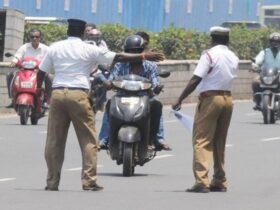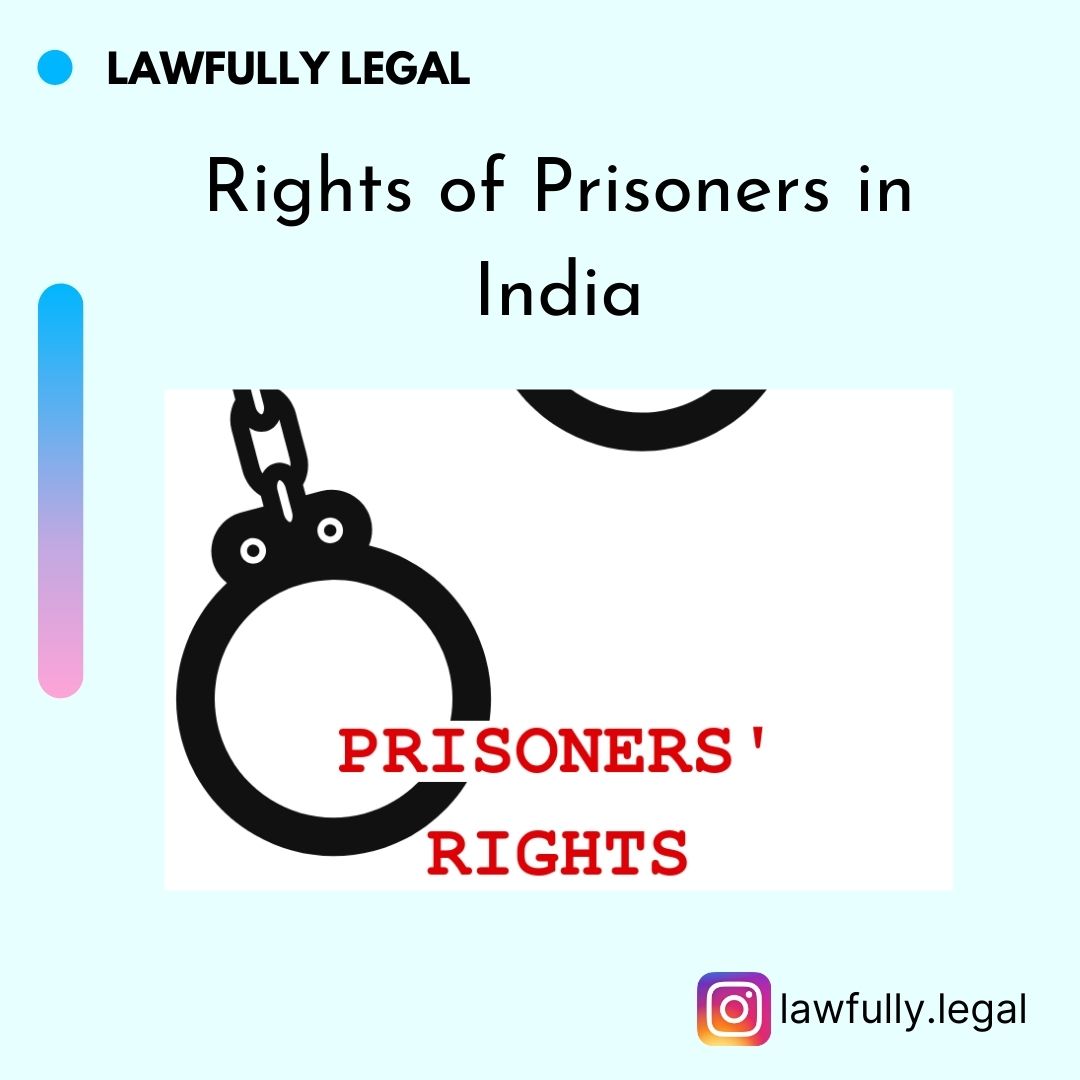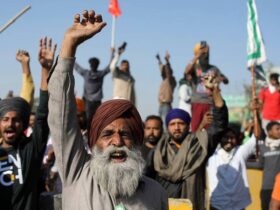Table of Contents
Introduction
Rights of Prisoners in India. India being a democratic country has rewarded its citizens’ certain fundamental rights enshrined in India’s Constitution. Every person in India has the right to be treated equally irrespective of race, caste, sex or religion.
Mere walls of prison cannot deprive a person of his Human rights though restricted on the pretext of imprisonment. The convicts behind the bars are guaranteed certain rights like as mentioned under Article 14, 19 and 21. However, these rights can be enjoyed by the prison inmates or the ones under trial in a limited sense like restriction on freedom of movement, freedom to reside settle etc.
Article 5 of the Universal Declaration of Human Rights proclaims that “No one shall be subjected to torture or cruel, inhuman or degrading treatment or punishment”. In a developing country like India, it is a matter of ignominy that it has no codified law on the rights of prisoners while they are still evolving.
The judiciary of India has got a crucial part to play when it comes to the protection of the Human Rights of people. It has upheld the precedents which work as a guide and are binding for all the courts in India.
Status of Prisoners in India

The prisons in India are tremendously overcrowded. As per the statistical reports provided by the World Prison Brief Data in 2019 (latest stats), the prisoners amount to a total population of 478,600 including pre-trial detainees/ remand prisoners while the official capacity of the prison system is 403,739, thus making the Occupancy level as high as118.5%. These include 4.2% of female prisoners, 0.1% of Juveniles/minors / young prisoners and 1.2% of foreign prisoners.
The deteriorating condition in prisons due to overcrowded cells, lack of training, dilapidated infrastructure, poor healthcare facilities etc has led to increasing morbidities among them. It is a high point for the government to reform and improve the healthcare and other facilities for the prisoners.
Rights of the prisoners in India

Prisoner’s rights have been recognized not only to protect them from physical discomfort or torture in person but also to save them from mental torture. The Apex court of India has time and again in its ruling has ingeminated that if anyone gets sentenced for his wrongful act it doesn’t give the authorities to illtreat him and deprive him of his rights.
In the case of the State of Andhra Pradesh v. Challa Ramkrishna Reddy, it was held that a prisoner is entitled to all the fundamental rights unless curtailed by the constitution.
Human rights available to prisoners

Article 21 of the Constitution of India holds the utmost importance when it comes to Human Rights in India and guarantees that no person shall be deprived of his life and personal liberty except according to procedure established by law.
The scope of Article 21 has been widened through the celebrity cases like Maneka Gandhi v. Union of India, Kharak Singh v. State of UP where it has been held that the word ‘life’ means much more than the mere existence of a person.
In order to safeguard the rights of prisoners, the court has taken into consideration the rights such as the right to legal aid, right to talk to friend/ relative/lawyer, speedy trials, right against solitary confinement and bar fetters etc. though not explicitly mentioned as Fundamental Rights under Article 21 of the Constitution.
Rights against Solitary Confinement and Bar Fetters

Solitary confinement is a form of imprisonment which is designed for troublesome and unmanageable prisoners. They are allowed to have little or no contact with the prison inmates and thus are taken care of with higher security measures. The aim of segregating these prisoners from others is to teach them discipline.
The validity of solitary confinement was held in the famous case of Sunil Batra v. Delhi Administration where the Supreme Court held that this type of confinement must only be imposed on the exceptional cases where the person is proven to be dangerous for others and his confinement is requisite.
The court also held that keeping the prisoners in bar fetters all day and night also weakens the mental capability of a human being and the cruel treatment of capturing them in bar fetters is against the very spirit of the Constitution of India.
Right to speedy trial
The right to a speedy trial has been mentioned under Section 309 of the Code of Criminal Procedure to resolve the grievances of the prisoners. It is relevant to mention that delay in justice itself constitutes a denial of justice.
The prisoners must not be forced to go through long and pending trials. Once convicted they must be entitled to have speedy trials irrespective of the wrongful act committed by them. In case of bailable offence, they must be granted bail in time, in case of punishment being declared they must be sent to jail whereas in cases where a person is proven innocent must be absolved quickly.
The accused must not be made to stay longer in prison than applicable time. It is an essential right provided to the prisoner which must be followed in its true spirit. In the case of A.R.Antulay vs. R.S.Nayak, the Supreme Court held that the right to speedy trial flowing from Article 21 of the Constitution is available to the accused at all stages like investigation, inquiry, trial, appeal, revision and retrial.
Right to meet Relatives, Friends and Lawyers
The Right to Life and Personal Liberty enshrined in Article 21 does not restrict to the mere existence of a human being and has much meaning and value-added to it. Article 22 (I) of the Constitution contains that no person who is arrested shall be denied the right to consult and to be defended by a legal practitioner of his choice. This right is also mentioned under section 303 of The Code of Criminal Procedure.
The arrested person is entitled to meet his lawyer as well as choose his lawyer himself. In the case of Dharmbir vs. the State of U.P, the court directed the State Government ‘to allow family members to visit the prisoners and for the prisoners, at least once a year, to visit their families, under guarded conditions.
Right to legal aid

The right of legal aid is not expressly mentioned in the Constitution of India however, the Judiciary of India has not failed to protect the poor, poverty-stricken prisoners to lose their chance of proving themselves innocent to the crime reported. Legal assistance has a major role to play in the life of an accused awaiting trial.
The 42nd Amendment to the Constitution (1976) of India unified services of free legal aid as Article 39A under the head Directive Principles of State Policy. Though this article is part of the Directive Principles of State Policy and hence, not enforceable, the principles underlined therein are of utmost importance. The Parliament has enacted the Legal Services Authorities Act in 1987 guaranteeing legal aid to prisoners. It is incumbent upon the State to keep this article in mind while framing rules and regulations for prisoners, criminals or convicts.
In the case of Madhav Hayawadanrao Hoskot v. the State Of Maharashtra, the judges of the Supreme Court of India read Articles 21 and Articles 39-A along with Article 142 and Section 304 of CrPC together emphasized that ‘the government of the country is under a duty to aid and provide legal services to the convicted or accused individual.
Conclusion
Prisoners when put behind the bars do not degrade themselves from the status of a human being. They are entitled to constitutional rights but with a few restrictions. The Central and State does not only hold the responsibility of providing humane conditions to the prison inmate but also to educate them about their rights to prevent from getting abused or exploited.
The judiciary of the nation has come forward and has played a crucial role in safeguarding the rights of prisoners. The Apex Court has taken corrective measure and has been sensitive to the human rights of the people of the country. It has only been possible through judicial activism that the judiciary has been able to devise new remedies for safeguarding the most precious Human Rights.
Recent post
Why do banks want you to stop using cryptocurrencies?










Leave a Reply
View Comments